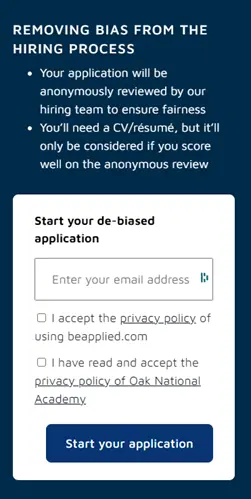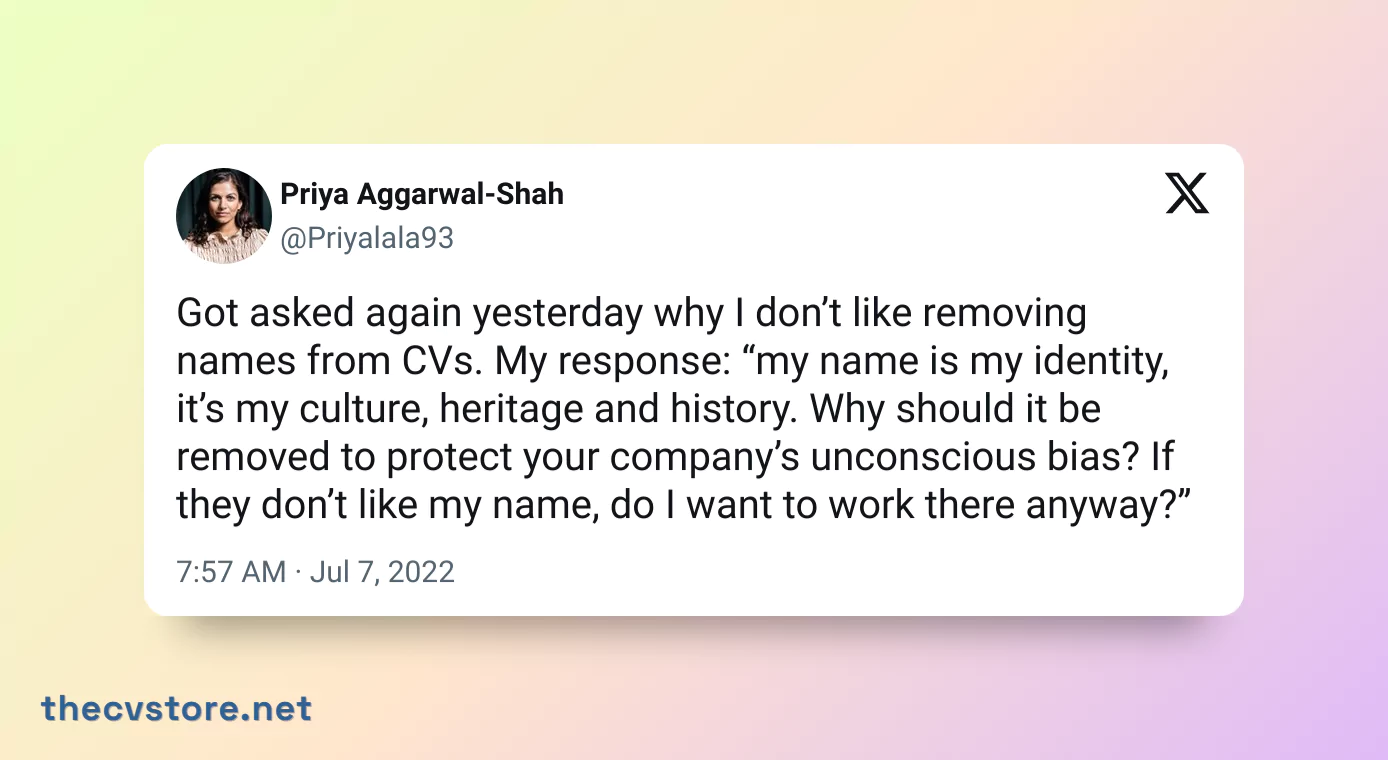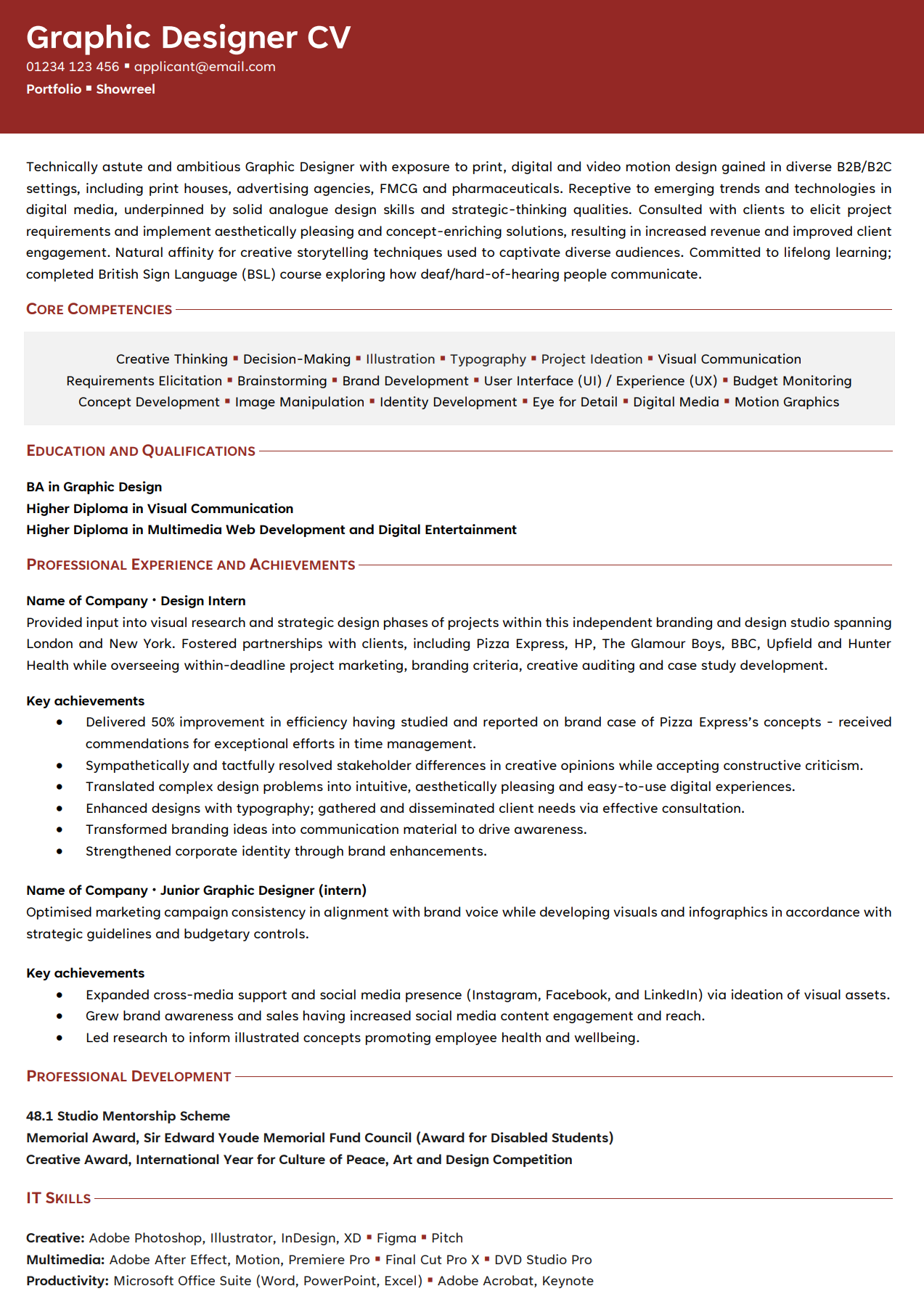Going in Blind. Writing a Blind CV
Blind recruitment, also known as anonymous or unconscious bias-free recruitment, removes personal identifying information from job applications to eliminate biases and create a more diverse and inclusive recruitment process. This includes removing names, addresses, universities, and other identifying details.
What is unconscious bias in the recruitment process?
Unconscious biases are automatic and unintentional, and result in decisions being made at a subconscious level. They can have a huge impact on how a candidate is perceived based on their race, gender, religion, nationality, or sexuality.
By addressing unconscious bias through 'blind' approaches to recruitment, recruiters and HR professionals can build a more diverse and inclusive workforce.

One aspect of blind recruitment that can be especially challenging is the creation of a CV that effectively conveys a candidate's qualifications and experiences without any personal identifying information. Here are a few tips for creating a successful CV for a blind recruitment process:
Focus on your achievements and accomplishments: Instead of simply listing your responsibilities and duties, highlight your achievements and accomplishments in each role. Use specific examples and quantify your impact whenever possible.
Use descriptive job titles: Without the benefit of knowing the name of the company or organisation you worked for, it can be difficult for a recruiter to understand the scope of your role. Use descriptive job titles that convey your level of responsibility and the nature of your work.
Emphasise skills and qualifications: While your work experience is important, it's also crucial to highlight your skills and qualifications that are relevant to the position you're applying for. Be sure to include any relevant certifications or training programs you've completed.
Keep it relevant: In a blind recruitment process, focusing on the skills and experiences most relevant to the position you're applying for is pivotal. Don't be tempted to include unnecessary information or filler content that doesn't add value to your application.
Common types of unconscious bias in the recruitment process
Stereotype bias: Possibly the most common type of bias in recruitment. For example, if an applicant studied at a renowned university, the recruiter could assume the candidate must be smart.
Halo effect: An example of this could be if a recruiter notices the applicant won a prestigious sales award. This one award then influences their view on the rest of their CV in a positive light.
Horn effect: This is the complete opposite of the above and tends to apply more to how a candidate presents themselves. The most common example of the horn effect is stereotyping overweight people as lazy. This one element of the applicant's appearance can leave a recruiter having a negative view of them and their ability levels (despite the fact they could be the most qualified).
Affinity bias: This type of bias presents when a recruiter allows personal interests or similarities to influence their view of an applicant. For example, if the candidate completed the same degree as the recruiter, this could result in the recruiter believing they could share character traits and intelligence levels.
Confirmation bias Preconceived ideas (searching for information that aligns with a recruiter's personal views) can result in discrimination during the recruitment lifecycle. Here, social media can also play a role. For example, a recruiter locates an applicant's Facebook profile and notices they have lots of holiday photos. The recruiter could then assume the candidate is unsettled and will be looking to leave the role to travel in the near future.
What should you remove from your CV to create a blind CV?
- Photos: Explained in the above under affinity bias. For UK-based applications, photos aren't needed in a CV.
- Employment and qualification dates: Do this to prevent disclosing your age.
- Your name (yes, that's right!): As John Manzoni, Chief Executive of the Civil Service and Permanent Secretary for the Cabinet Office mentions, "By removing the candidate's name and other personal information, such as their nationality or the university they attended, we aim to ensure that people will be judged on merit and not on their background, race or gender."
- Hobbies: Generally, hobbies aren't needed on a CV anyway.

What are the benefits of a blind CV?
Promotes diversity and inclusion while cutting the potential for discrimination: As mentioned above, removing personal identifying information from job applications and CVs can help to eliminate unconscious biases and create a more diverse and inclusive recruitment process. This can lead to a more representative and qualified pool of candidates.
Focuses on skills and qualifications: Without the ability to see personal identifying information, recruiters are forced to focus on a candidate's skills, qualifications, and experiences.
Increases objectivity: With the influence of personal identifying information out of the picture, recruiters may be more objective in their evaluations of candidates and less likely to be swayed by their own biases.
Disadvantages to a blind CV:
May obscure important context: Removing personal identifying information from job applications can make it more difficult to understand the context in which a candidate's skills and experiences were gained. This can make it harder for recruiters to fully understand a candidate's qualifications and capabilities.
Could (strangely) result in even less diversity: This seems like a strange one. However, while the goal of blind CVs is to promote diversity and eliminate bias, there's still a risk that it could have the opposite effect. For example, without the ability to see personal identifying information, a human recruiter (as opposed to ATS) may be more likely to select candidates who are similar to themselves or who have connections related to their networks.
Can use up much-needed resources: Creating and reviewing blind CVs can be more time-consuming for recruiters, as they must evaluate candidates without the benefit of seeing personal identifying information that could help to contextualise their skills and experiences.
May not be feasible for smaller companies with limited resources: Implementing a blind CV process can be logistically challenging for some companies, particularly if they have a small recruiting team or limited resources.
Example of a blind CV

